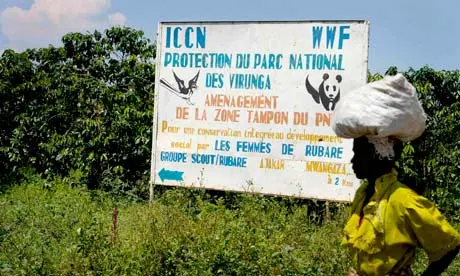Dr Chris Nicholas, an assistant professor in the Department of Geology, has been revealed to have extensive links to the oil company Pharos Energy Plc., which is alleged to have been complicit in a series of human rights abuses.
Pharos Energy Plc, previously known as Soco International (SOCO), is an oil and gas exploration and production company with headquarters in London. Dr Nicholas worked for the company for three years from 2010 to 2013. He worked for their operations in the Democratic Republic of Congo where he prepared exploratory maps for the exploration and production of the Lake Edward Region of Virunga National Park as part of a research project he carried out in the area which was funded by SOCO, as stated on his TCD People Finder website page.
The corporation’s activities in the Virunga National Park were controversial from their inception and have since been mired in scandal. Initially there was strong local resistance to the plans to explore for oil and gas as the excavations would have put the livelihoods of local communities at risk. This national park is also a UNESCO designated world heritage site, and is home to a quarter of the world’s mountain gorilla population, the habitat of which would have been threatened by the proposed exploratory excavations. Many conservationists, including the WWF (World Wildlife Fund) and David Attenborough, had criticised Soco for its attempts to drill in the park.
In 2014, WWF staff and others who had campaigned against oil activities in Virunga said they began receiving threatening calls and text messages, including death threats, from unknown numbers. These threats related to a series of public statements about the negative impacts of oil. This followed the attempted assassination of Virguna’s national park’s chief warden and the death of two Congolese park wardens earlier that year. SOCO has always denied any involvement in threats to activists and park staff.
After the project was cancelled, a litany of alleged human rights abuses came to light. An investigation was carried out by Global Witness, an international NGO that investigates and exposes environmental and human rights abuses in the oil, gas, mining and timber sectors, and tracks ill-gotten money and influence through the global financial and political system.
The investigation stated that cheques and receipts seen by Global Witness showed that the company had paid over $40,000 in just two weeks to a Congolese military officer accused of bribery and violence. The officer in question, Major Burimba Feruzi, and the soldiers under his command are accused of ordering the beating and detention of SOCO’s opponents. Furthermore, locals claim that two fishermen resistant to SOCO’s presence were killed by soldiers connected to company security. The Global Witness report added that evidence seen by them suggested that SOCO was paying the salaries of the soldiers near the company’s base at the time of the alleged murders of the fishermen.
Additionally, in the filming of the Oscar-nominated documentary Virunga, Feruzi was caught on camera offering a $3,000 bribe to a senior Virunga National Park Ranger.
Global Witness closed their report by calling for SOCO to face criminal investigations into allegations of wrongdoing by its contractors. These calls were echoed by Tess Munt in 2015 who was then the head of a cross-party anti-corruption group of British MPs. The Church of England also sold its stake in SOCO in light of these accusations of bribery, corruption and human rights abuses in Virunga. The Church had asked SOCO to conduct an independent inquiry into the allegations but, at a SOCO AGM in 2015, the company refused to publish the scope or outcome of the inquiry.
Whilst SOCO eventually admitted that they did finance the soldiers who guarded its base who were under the command of Feruzi and are accused of murder, it has called any allegations of bribery and intimidation “false and inaccurate”. Specifically in response to the murder of the two fishermen SOCO’s then deputy chief executive, Roger Cagle, denied responsibility for these actions to the Telegraph newspaper, saying that the soldiers were “not associated with SOCO. They’re assigned to us. We can’t tell the army to go and kiss off”.
Although these allegations came to light after Dr Nicholas had left SOCO, he supervised a MSc funded by the company, which was published in 2020.
In a statement to The University Times, Dr. Nicholas said: “As an academic with extensive field experience working in East Africa, I was approached by SOCO to collaborate with them by acting as a consultant and conduct geological mapping of parts of the southern Lake Edward area in 2014.”
“I was never an employee of SOCO, nor did I have, or do I have, “extensive links” with SOCO or Pharos Energy. SOCO pulled out of exploration in Africa in 2015 and I have had no further contact with them since they left.”
Correction: November 29th, 2023
Due to an error in the print edition of this article, an earlier version of this piece stated that the academic work supervised by Dr. Nicholas was a PhD in 2020. In fact, he supervised an MSc that started in 2015 and was published in 2020.







